Agriculture in Karamoja-The need for integrated livestock-crop development
UKAID
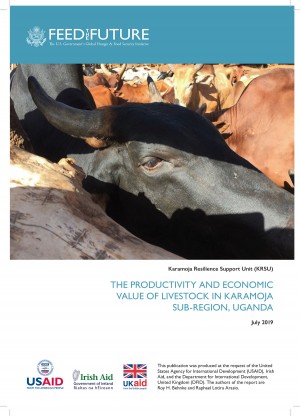
The Productivity and Economic Value of Livestock in Karamoja Sub-Region, Uganda
Across the East Africa region livestock are an important asset for rural households, and livestock products contribute to human nutrition, and to local, national and regional economies. However, in some countries there has been a longstanding issue of under-investment in the livestock sector, and this problem has been associated with official underestimates of livestock’s contribution to national economies.
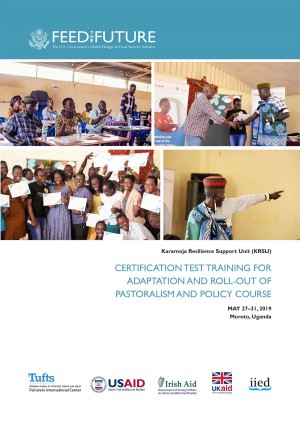
Certification Test Training For Adaptation and Roll-out of Pastoralism and Policy Course
The Karamoja Resilience Support Unit (KRSU), in partnership with the International Institute for Environment and Development (IIED), commissioned the adaptation and roll-out of the East African Pastoralism and Policy Course (PPC) and has completed the final training of trainers (ToT) course.
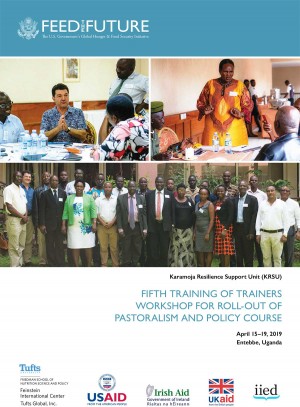
Fifth Training of Trainers Workshop for Roll-out of Pastoralism and Policy Course
The Karamoja Resilience Support Unit (KRSU), in partnership with the International Institute for Environment and Development (IIED), commissioned the adaptation and roll-out of the East African Pastoralism and Policy Course (PPC) and has completed the final training of trainer’s (ToT) course.
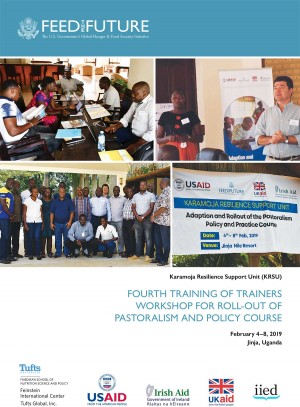
Fourth Training of Trainers Workshop for Roll-out of Pastoralism and Policy Course
The Karamoja Resilience Support Unit (KRSU), in partnership with the International Institute for Environment and Development (IIED), commissioned the adaptation and roll-out of the East African Pastoralism and Policy Course (PPC) and has completed the final training of trainer’s (ToT) course.
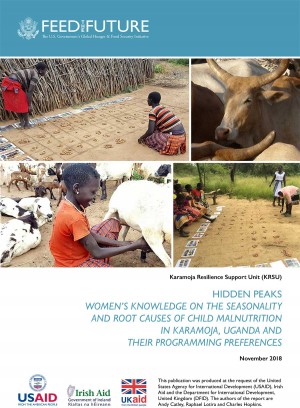
Hidden Peaks: Women’s Knowledge on the Seasonality and Root Causes of Child Malnutrition in Karamoja, Uganda and Their Programming Preferences
This report from the KRSU uses participatory epidemiology to understand women’s knowledge on the seasonality and causes of child malnutrition in Karamoja. The report provides important new information on the timing of peaks in child malnutrition, women’s views on the main causes of malnutrition and the relative importance of these causes, and women’s preferences for programs to reduce malnutrition
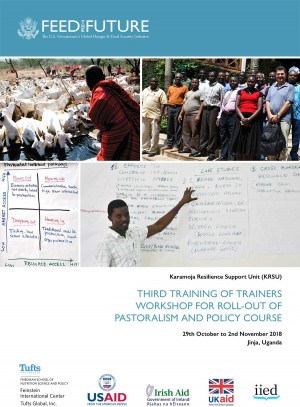
Third Training of Trainers Workshop for Roll-out of Pastoralism and Policy Course
The Karamoja Resilience Support Unit (KRSU), in partnership with the International Institute for Environment and Development (IIED), commissioned the adaptation and roll-out of the East African Pastoralism and Policy Course (PPC) and has completed the final training of trainer’s (ToT) course.
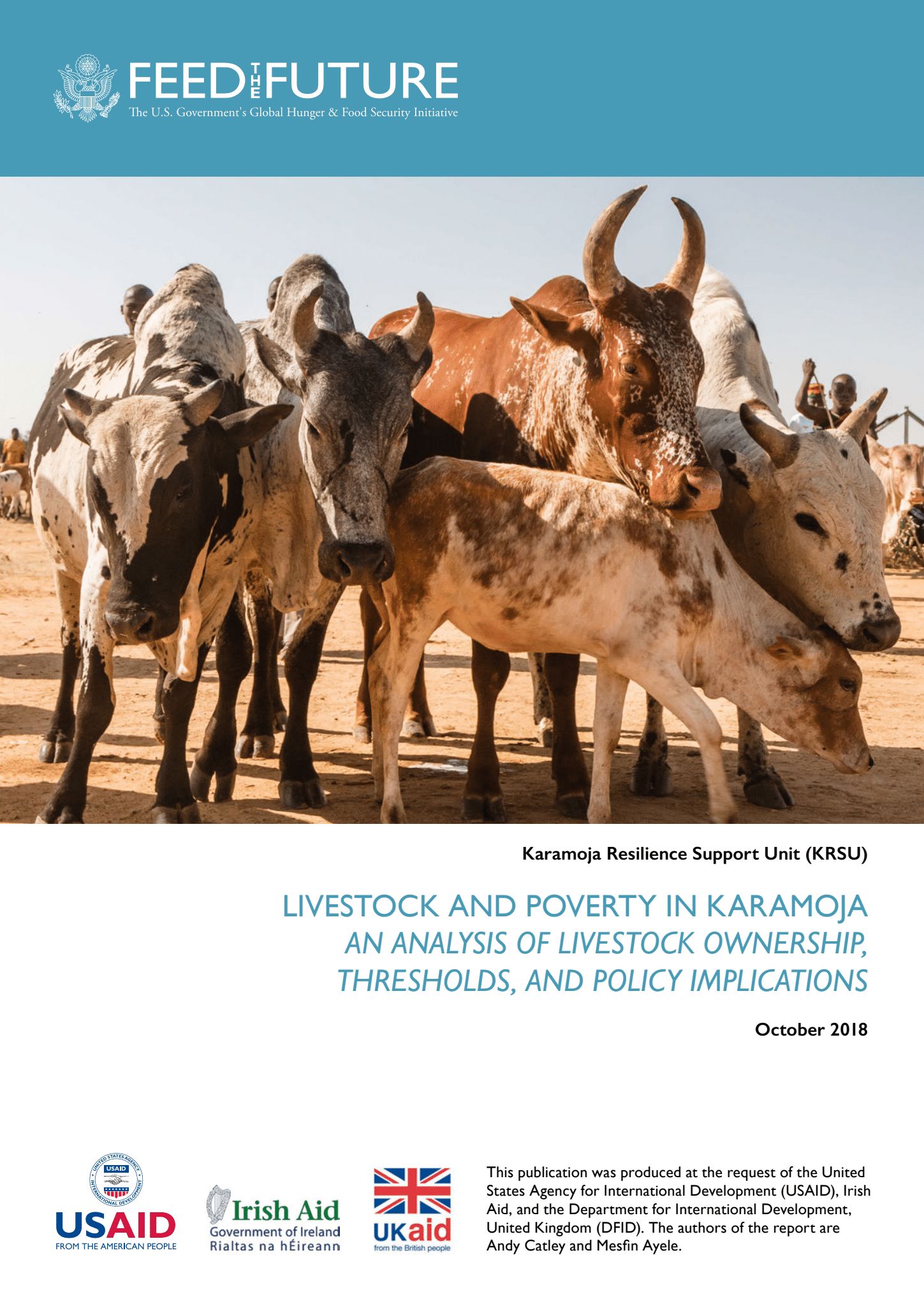
LIVESTOCK AND POVERTY IN KARAMOJA AN ANALYSIS OF LIVESTOCK OWNERSHIP, THRESHOLDS, AND POLICY IMPLICATIONS
In pastoralist and agro-pastoralist households in East Africa, livestock not cash are usually the main financial asset. Animals are sold to buy grain and to meet other domestic needs, and animals also provide food, especially milk, for direct human consumption.
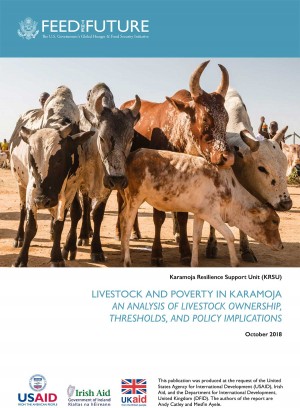
Livestock and Poverty in Karamoja – An Analysis of Livestock Ownership, Thresholds, and Policy Implications
This report analyses poverty in Karamoja from the perspective of livestock ownership, and uses a livestock threshold to categorize households as poor and non-poor. High levels of livestock poverty are then discussed in relation to programming and policy options
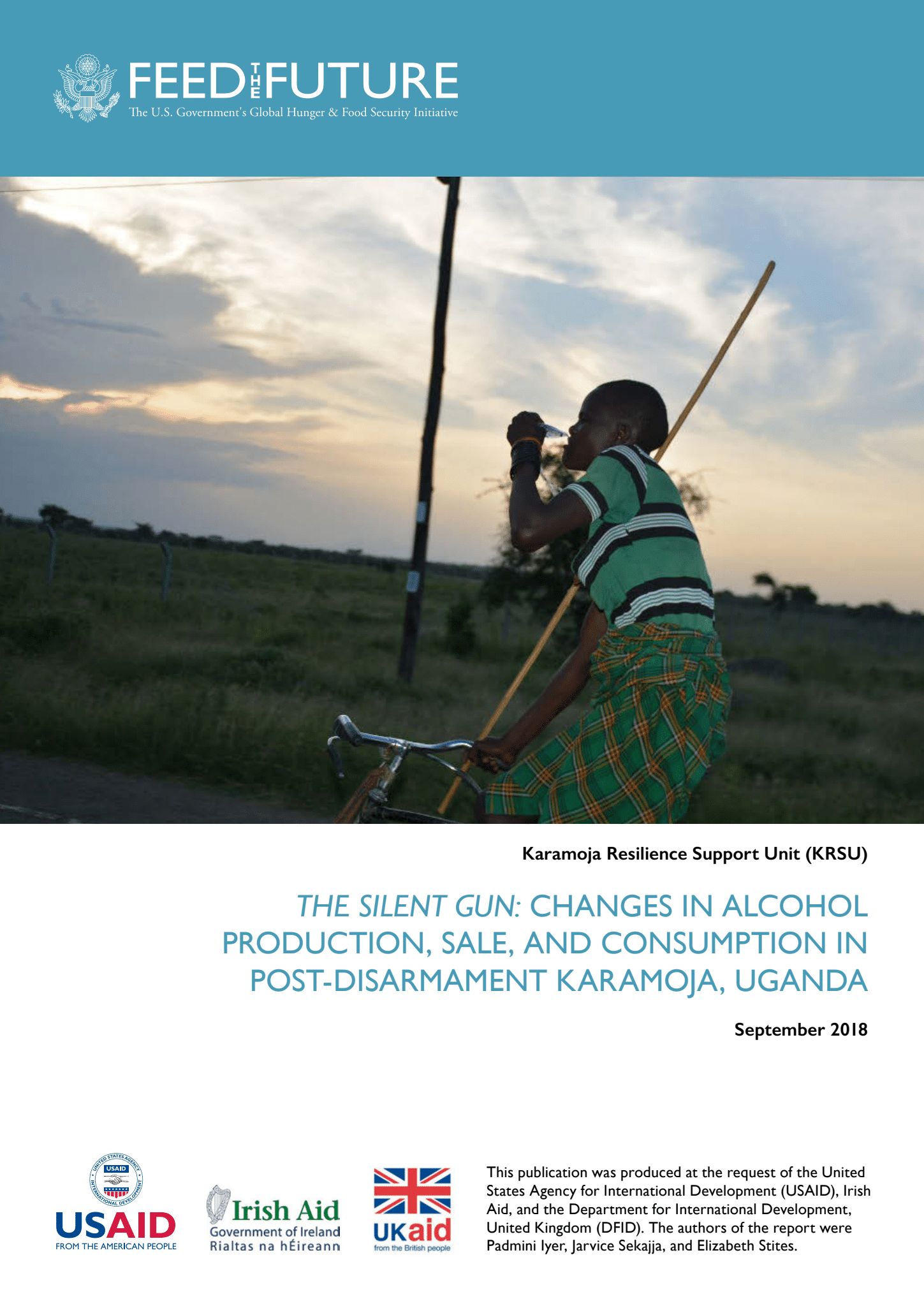
THE SILENT GUN: CHANGES IN ALCOHOL PRODUCTION, SALE, AND CONSUMPTION IN POST-DISARMAMENT KARAMOJA, UGANDA
Research and observations over the past decade have pointed to the high prevalence of alcohol use in Karamoja. Brews made locally of sorghum and maize have sociocultural, nutritional, and economic significance.
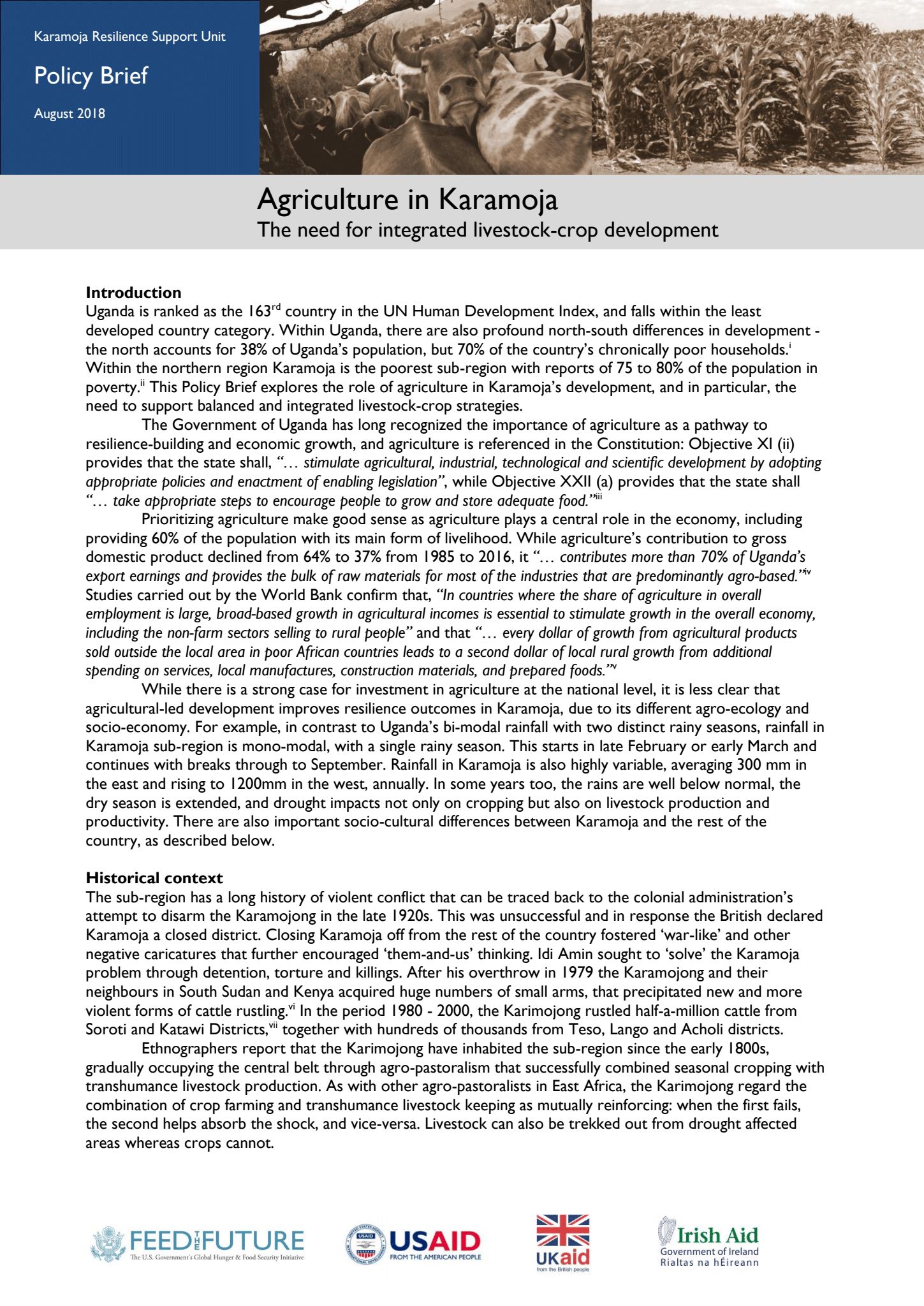
Agriculture in Karamoja-The need for integrated livestock-crop development
This Policy Brief explores the role of agriculture in Karamoja’s development, and in particular, the need to support balanced and integrated livestock-crop strategies.
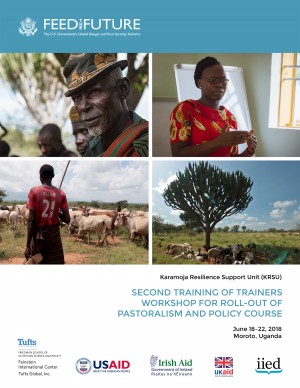
Second Training of Trainers Workshop for Roll-out of Pastoralism and Policy Course
The Karamoja Resilience Support Unit (KRSU), in partnership with the International Institute for Environment and Development (IIED), commissioned the adaptation and roll-out of the East African Pastoralism and Policy Course (PPC) and has completed the final training of trainer’s (ToT) course.
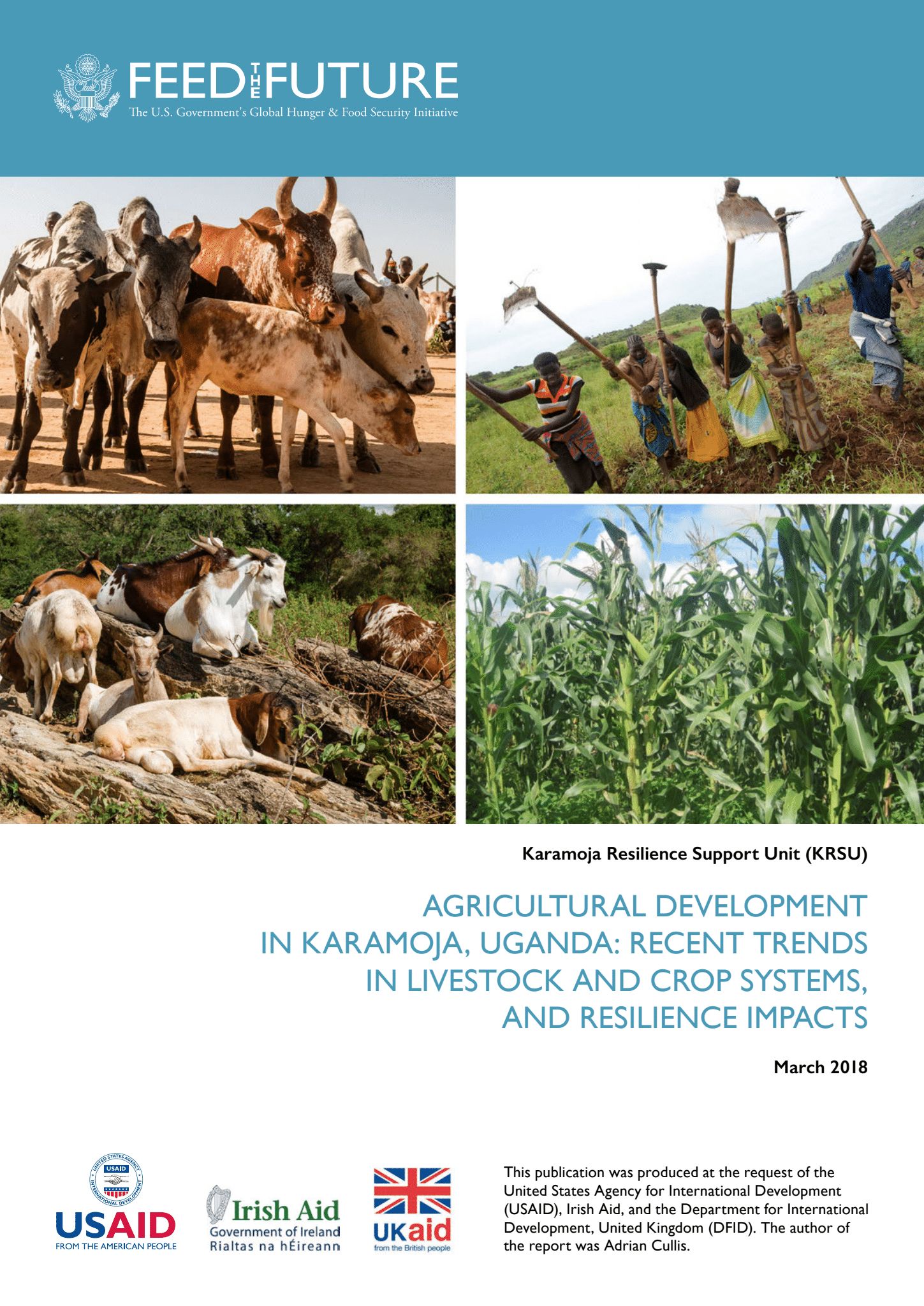
AGRICULTURAL DEVELOPMENT IN KARAMOJA, UGANDA: RECENT TRENDS IN LIVESTOCK AND CROP SYSTEMS, AND RESILIENCE IMPACTS
This report is a review of agricultural development trends in the Karamoja sub-region of northeast Uganda. The review covered both crop farming and transhumance livestock management and examined agriculture at the levels of both policy and programming.
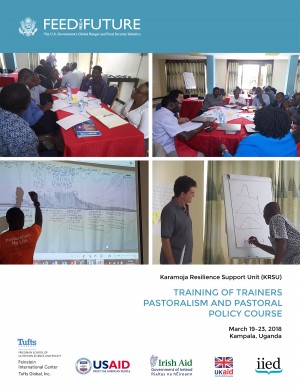
Training of Trainers Pastoralism and Pastoral Policy Course (One)
The Karamoja Resilience Support Unit (KRSU), in partnership with the International Institute for Environment and Development (IIED), commissioned the adaptation and roll-out of the East African Pastoralism and Policy Course (PPC) and has completed the final training of trainer’s (ToT) course.
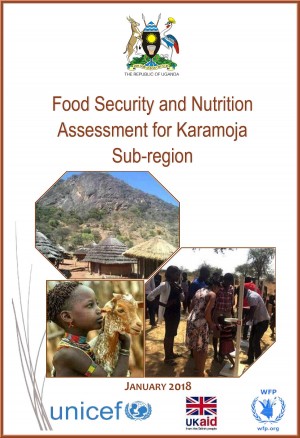
Food Security and Nutrition Assessment for Karamoja Sub-region
The overall aim of the Karamoja FSNA was to determine the extent and severity of malnutrition in different age groups and food security of households as well as monitor selected food security, nutrition, health, water and sanitation indicators to assess programme performance
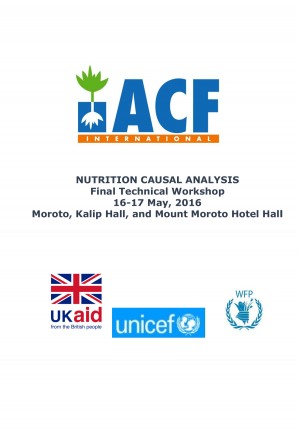
Nutrition Causal Analysis
The purpose is to go beyond generic interventions by identifying really context-specific causes in order to propose adequate solutions. The seasonality of under-nutrition can for example be very different from one livelihood zone to another. A Link NCA is not a statistical demonstration of nutrition causality that can be generalized at a national level.
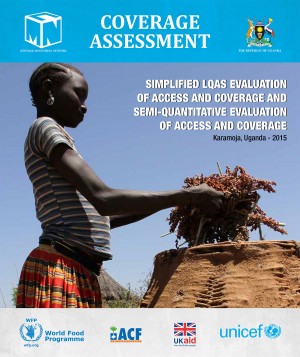
Coverage Assessment
Coverage assessments were conducted by ACF-UK in the Karamoja region from January to March 2015, in conjunction with UNICEF, WFP and MoH. The objectives of these assessments were: To map out point or period estimates of coverage of targeted areas; Identify boosters and barriers affecting coverage of OTC/SFP programs in the seven districts of the Karamoja region; In collaboration with key partners and the MoH, develop specific recommendations to improve acceptance and coverage of the program; Build capacity in MoH and key partners’ SLEAC/SQUEAC methodologies.
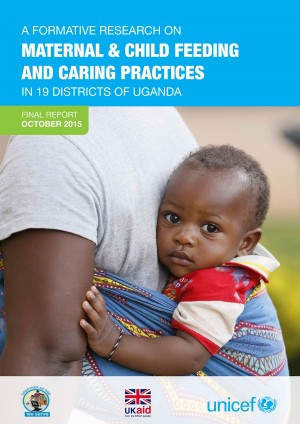
Maternal and Child Feeding and Caring Practices
The formative study aimed to identify and gain an appreciation of existing knowledge, attitudes, practices (KAP) and beliefs that community members have regarding nutrition practices. It also sought to establish challenges (barriers) mothers face regarding adequate nutrition practices; what would make mothers start employing adequate nutrition practices (triggers and enhancers) and; incentives within the mothers’ immediate social environment that possibly trigger adequate and appropriate nutritional practices.
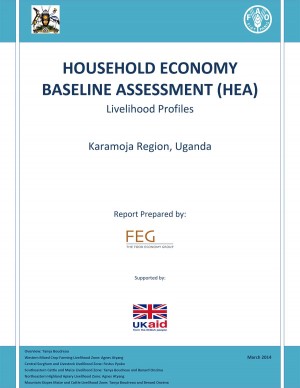
Household Economy Baseline Assessment (HEA)
This assessment was conducted in order to provide a solid base of livelihoods-related evidence to inform a 27-month (October 2013 – December 2015) FAO-implemented project in Karamoja sub-region titled “Strengthening Adaptive Capacity of Agro-Pastoral communities and the Local Government to Reduce Impacts of Climate Risk on Livelihoods in Karamoja, Uganda.